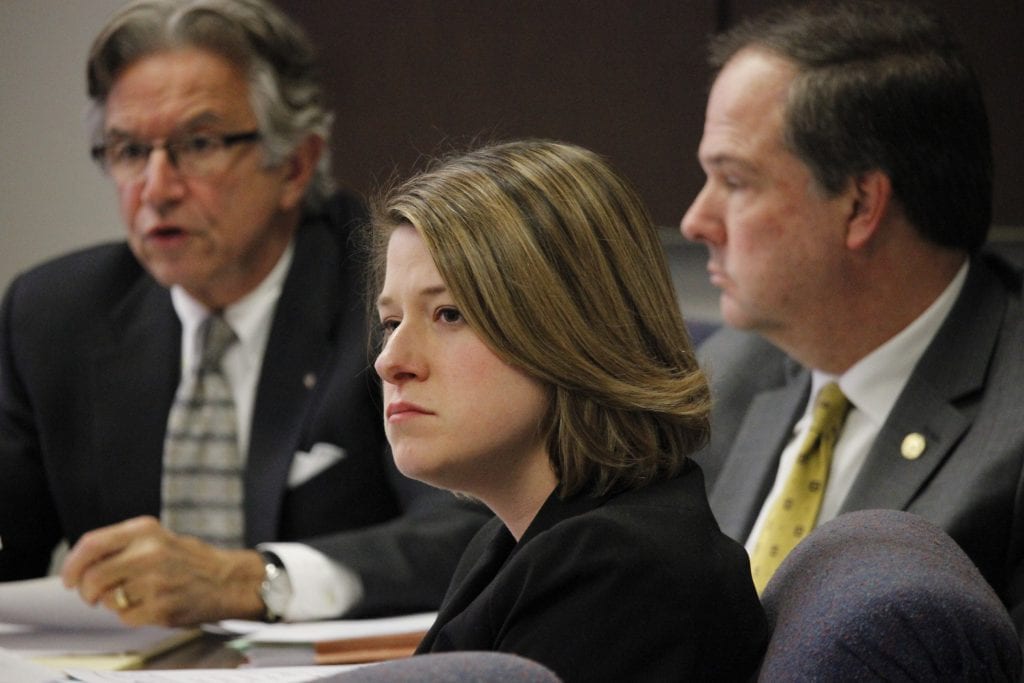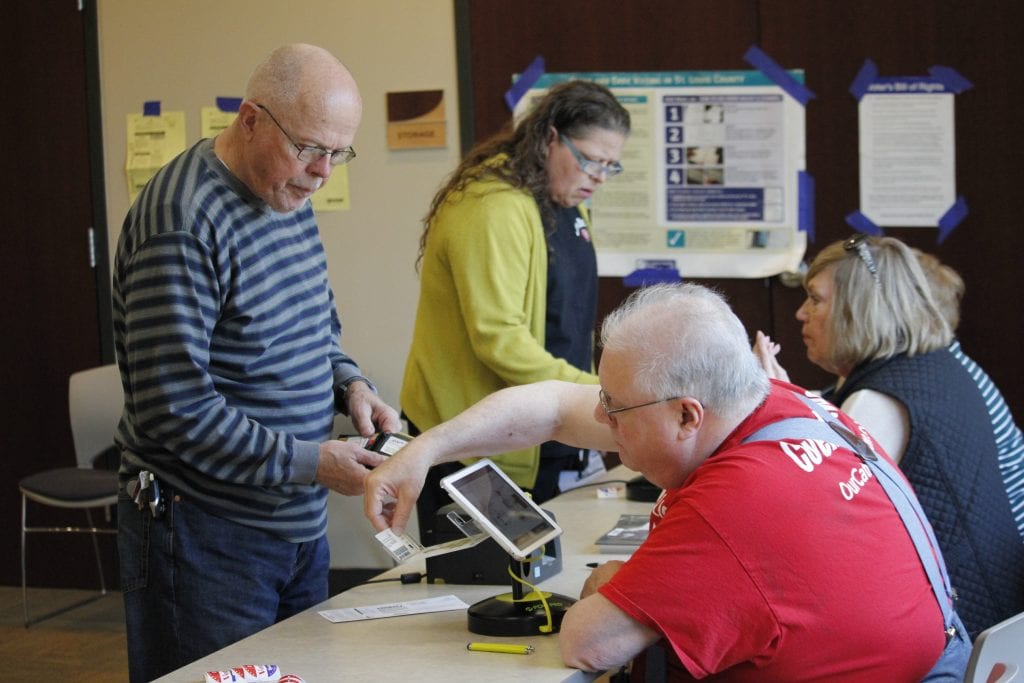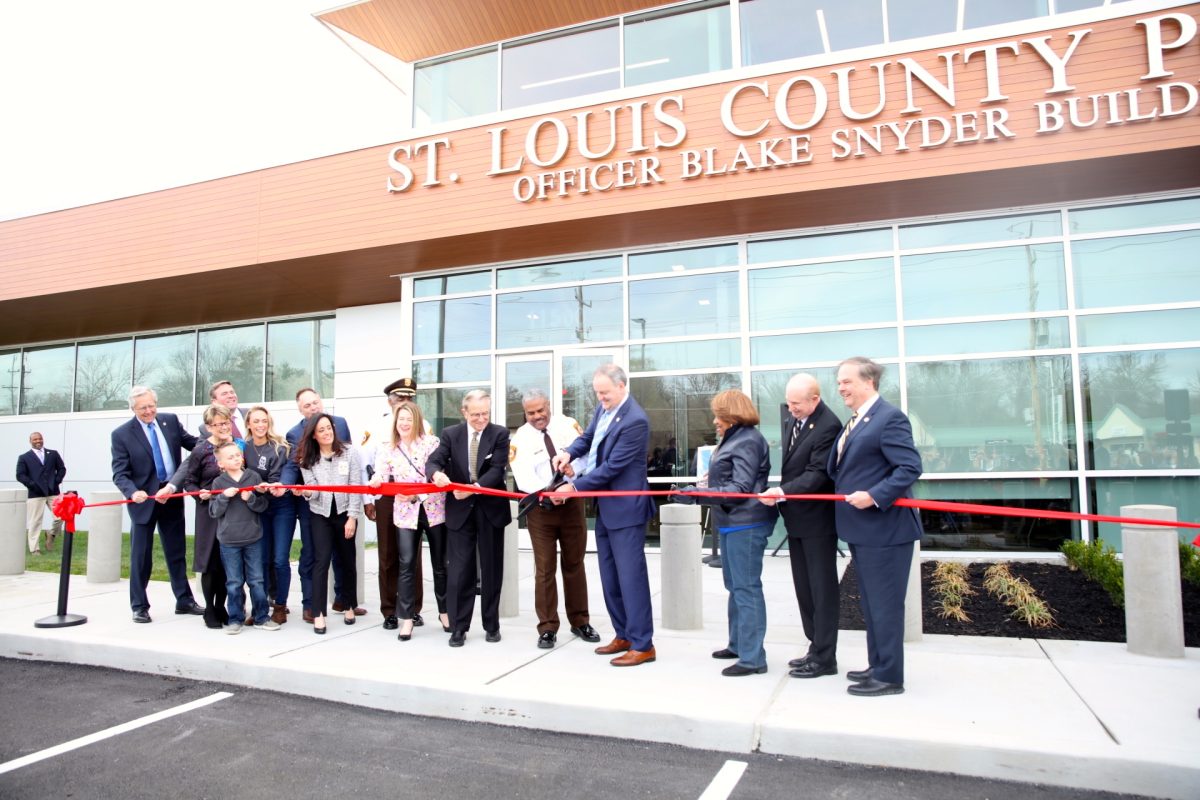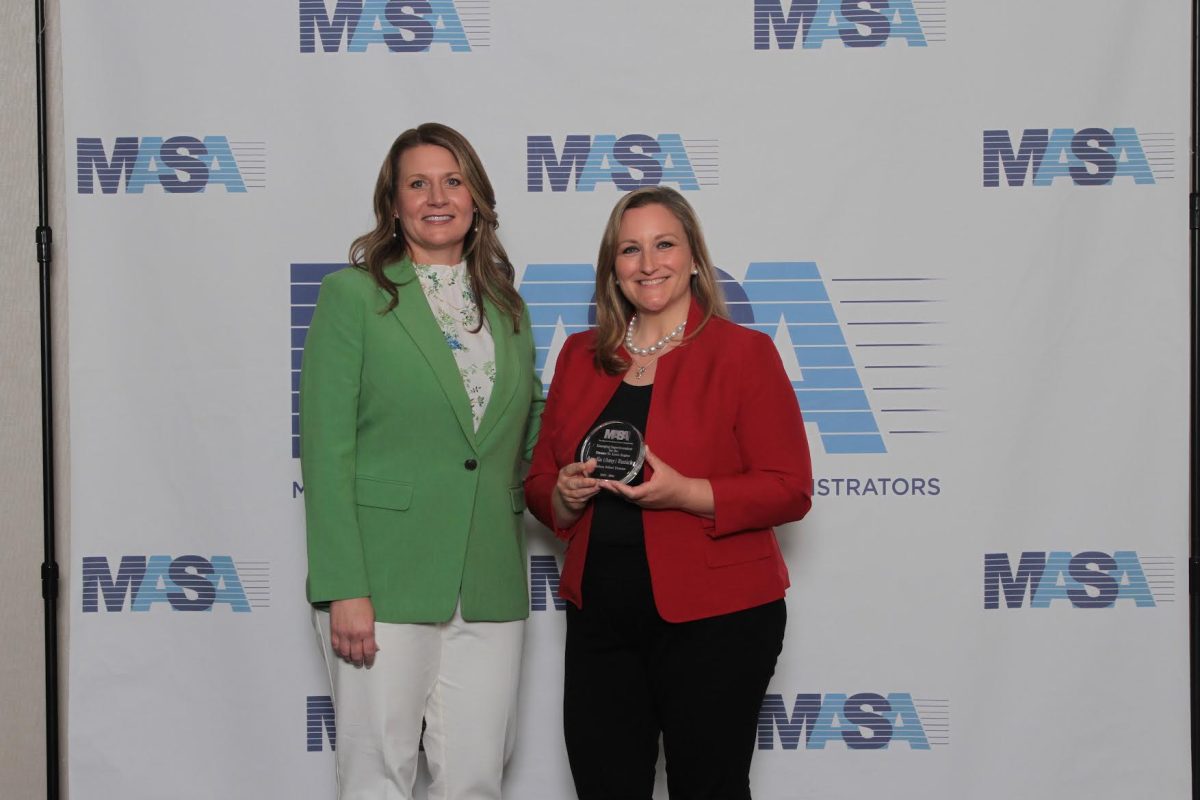BREAKING: The county executive’s office emailed County Council members late Friday afternoon, after this article was published, to postpone the deadline to apply for the grants from Sunday, May 17 to Sunday, May 31. Council members will now submit their recommendations for funding by June 15, not June 1. Check back for updates as we learn more information.
As the Sunday deadline approaches for St. Louis County businesses to apply for $15,000 grants for businesses affected by the coronavirus pandemic, business owners and the County Council members who will decide who gets the money are still confused about basic questions on eligibility.
The $17.5 million in the Small Business Relief Grant program will be distributed equally among the seven County Council districts, with each council member awarding $2.5 million in grants with the help of municipal mayors. The money comes from the county’s $173.5 million in federal funds for COVID-19 response.
The deadline to apply for the funds is 11:59 p.m. Sunday, May 17. Council members will decide who gets the money by June 1.
County Executive Sam Page announced the program in his press briefing May 1. The official guidelines released soon after at the county’s STLCorona.com website outlined just a few requirements that have stayed the same in the two weeks since the program was announced: Businesses must apply for funding in the district where their business is located and must have 50 or fewer employees to qualify as a small business under the grant. Nonprofits and churches can also apply.
But most of the key eligibility requirements for the grant have changed, making more businesses eligible who may not know that they can now apply.
Initially, the county said companies must have been closed during the ongoing COVID-19 stay-at-home order to get the money. But new information just posted on the website says that any business affected by the pandemic, including restaurants who were reduced to curbside or takeout service, can apply.
The county also initially said that the grants were only open to businesses that did not receive other federal funding, such as the forgivable loans from the Payback Protection Program. But that has also changed, and now businesses that received other assistance are eligible even though the application still asks that question.
That has led to confused business owners looking to their council members to find out what the rules are. But council members themselves were still in the dark about key aspects of the program on Thursday, four days before the deadline.
“The concept is good, but it’s been extremely disorganized the way it’s put together,” said 3rd District Councilman Tim Fitch, R-Fenton. “I think they’ve aggravated more people than I think they’re going to help, unless he (Page) significantly increases the funding.”
Council Chairwoman Lisa Clancy, D-Maplewood, of the 5th District, said that the county had to balance speed in helping struggling businesses who need money now with taking more time to plan guidelines for the program. By sending it through the council, money is distributed evenly throughout the county by people who may know more about local businesses than someone in Clayton.
“Communities that protect their Main Streets are going to have a competitive advantage as we gradually return to normalcy,” Clancy said. “So that’s what the Small Business Relief program is designed to address…. It’s a big task, but I do think that we’re going to really be able to help some people.”
When Page announced the grants May 1, he said that speed was a priority to assist struggling businesses: With the help of the council members and mayors, he hoped the county could move the full $17.5 million into the community as soon as possible after June 1.
“The goal of all this really is to focus on the businesses that have the most financial need in our community, and we believe that we need the help of our elected officials who are closest to the businesses, closest to the community, to help us make those judgments,” Page said.
But like other council members, 6th District Councilman Ernie Trakas, R-Oakville, said he’s been continually frustrated with not being able to answer basic questions about the program for his constituents.
“Great idea, bad planning,” Trakas said. “We’ve all had the same level of frustration trying to get any clear direction on exactly what may well be a deal breaker for businesses wanting to apply…. It doesn’t appear to me that there was a whole lot of planning on exactly how this would work.”
As recently as this week, some council members were even confused about the deadline itself. The initial wording on the county website didn’t list a deadline, but implied that it was May 14. The website now has large lettering at the top stating the May 17 deadline.
“I was actually saying May 14 for awhile too, and then my assistant pointed out to me that it doesn’t actually say on the website that the deadline is anywhere, so that was another point of confusion,” Clancy said.
With the rules changing days before the deadline, council members have faced problems trying to get the word out that businesses who thought they weren’t eligible could now apply for the funding. They’ve recruited mayors and chambers of commerce to spread the word, but not every business is connected in those circles.
“These businesses are going to be upset when they find out that the business next door got it and they didn’t because they didn’t put in for it because they got the PPP money,” Fitch said.
There’s immense frustration on the part of council members who until the last day did not have guidance on the “deal breaker” of whether businesses were eligible that had not been closed entirely or had received some federal funding, Trakas said.
Fitch led two Zoom videoconferencing calls about the program earlier this week, one with 22 mayors and one with chambers of commerce, and he said he couldn’t answer most of the questions asked because the county hadn’t given him the information yet.
And if he provided an answer, it might have changed later.
“They’ve changed the rules as this has gone along,” Fitch said. “One of the mayors asked me: What rules are we following when we decide who’s eligible or not? I said that’s a great question — we don’t have the answer yet. And it’s got to be the same for all seven council districts because what you don’t want to find out is that (7th District Councilman) Mark Harder told his people one thing and I’ve told them something else. We need to be working off the same set of rules, and we don’t have those yet.”
Considering the confusion, Trakas, Fitch and Clancy have told people that if they’re unsure whether they qualify to go ahead and apply and they’ll figure out the eligibility later.
And while the website was just updated with some of the questions from the council members, council members received no official communication that it had happened.
“We’ve had nothing from the 9th floor saying the rules have changed,” Fitch said, using county government parlance for the county executive’s office.
How decisions will be made
After council members submit their choices June 1, an outside accounting firm will confirm that applicants meet federal guidelines on how the money can be spent. Applicants can’t be owned by someone who is an appointed or elected official in St. Louis County, a restriction that covers both the county itself and municipalities. If a business is in a city, the mayor has to sign off on the grant recommendation.
Beyond that, awarding the grants is completely up to the discretion of the individual council members, with little guidance on what they should be looking for. That is one of the aspects of the program that council members on the Special Committee for Oversight of the COVID-19 Funding and Expenditures questioned when they met for the first time last week.
“The regulations are a bit vague to me,” said 1st District Councilwoman Rita Days, D-Bel Nor, during the May 5 meeting, later adding, “More specificity in terms of that is probably something that I’m going to need.”
The Call talked to each of the three council members with some parts of South County in their district — Fitch, whose district has Sunset Hills and parts of Concord; 6th District Councilman Ernie Trakas, R-Oakville, who has most of South County, most of which is unincorporated; and Clancy, whose 5th District includes Crestwood, Grantwood Village and part of unincorporated Affton.
Each of the seven council members has one full-time legislative assistant. Trakas called it “absurd” on the part of the county to believe that those 14 people could handle the task of turning around recommendations on all the applications within two weeks.
“I appreciate the idea that the council members would be the gatekeepers so to speak or the decision maker, but from a practical standpoint, you’re talking about seven council members with one assistant each compared to a county that has over 4,000 employees,” he said.
To sift through hundreds of applications, each of those three council members are setting up “task forces” that will read through the applications, figure out if businesses are eligible and then decide whether to give them money and how much.
But not every council member has been as active. Fitch said he asked his mayors whose cities overlap into other districts what their council members had done, and some said other council members had been actively engaging the business community while others had not.
Trakas had the unique challenge of only having four mayors he could tap to serve on his task force. He filled out the rest of the volunteer committee of about a dozen people with representatives of the South County and Lemay chambers of commerce, among others. He split the dozen members into three “subgroups” in the district, and each of those small groups will only consider applications in their own geographic area: Lemay, Affton or “Southern District 6” with Oakville and the Mehlville area. The Lemay subgroup will have two representatives from the Lemay Chamber of Commerce. Above the task force, he’s got an “executive team” made of large organizations that aren’t eligible for the grants.
Chambers of commerce are nonprofit groups that are eligible to apply themselves, and Trakas said those applications will bypass the subgroups and go straight to the executive committee. He doesn’t expect the chambers to recuse themselves if the applicant is a member of the chamber, however, because that would be too difficult with so many businesses being chamber members, and “we have to trust in good faith” that the chambers are making honest decisions on quality of applications. If a subgroup member has clients who applied, those applications will go to a different subgroup.
Trakas said he isn’t providing any guidelines on how to select applicants to his groups beyond those the county has offered so far. But he believes his task force will do some “serious vetting” while reading through the applications.
“Decisions will be made, and God willing, they’ll be the right ones,” he said.
Fitch has two groups working on the project consisting of business owners who are ineligible because their businesses have more than 50 employees, nonprofits like Circle of Concern in Valley Park, executive directors of chambers of commerce and some city officials.
Already, Fitch has found that at least one applicant applied whose business is in Fenton but on the Jefferson County side, so his groups will make sure that any applicant is located in St. Louis County.
But aside from those basic eligibility requirements, Fitch said he told his review team not to deny anyone that genuinely asks for and needs the money, even if that means he recommends more than the $2.5 million in funding.
“We’re not going to deny anybody,” Fitch said. “I’ve got more than $9 million worth of requests, so when we send this into the county executive’s office with $9 million, if he’s going to cut it back to $2.5 million he’s going to have to decide how he’s going to do that.”
If the $2.5 million allotted was evenly split between the roughly 800 businesses in the 3rd District who have applied so far, Fitch estimated they would each receive $3,200, which wouldn’t be enough.
“My recommendation would be that every council member submits everyone that’s qualified per the rules that they came up with and then it will be incumbent on the county executive to tell these businesses no, you only get $2.5 million per council district so here’s your $3,200 check,” Fitch said. “We’re out of it at that point.”
When Page announced the grants, he said that if council members submit more proposals than the $2.5 million, the accounting firm will pare down the proposals so that each business receives less.
Trakas said he hadn’t heard of Fitch’s plan but thought it had merit.
“It’s not a bad idea, let them decide who’s worthy and who isn’t,” he said. “Either way, there are insufficient funds devoted to it.”
Clancy said she is going to develop an evaluation rubric beyond what the county has outlined that will help “make sure we are making the greatest impact.” She’s already received more than 200 applications in her district.
“It is going to be a very tough decision, it’s going to be competitive” to choose among the businesses, Clancy said. She has a task force with all the mayors and chamber directors in her district, unless those directors are applying for funding themselves. She’s still looking for someone to represent unincorporated Affton on the panel.
Some of the mayors’ takes on how the money should be allocated were thought-provoking, Clancy said. One mayor thought everyone who applied should get something, even if it was only $500. Another mayor said that wouldn’t make a difference and that fewer grants of larger amounts should be awarded.
Clancy said no one will be disqualified if they’ve received other federal funds, but she will be looking at that question to see if anyone has been “left behind.”
“We want to help people, we want to help as many people as possible, but we also want to make decisions based on where we think we’re going to make the most positive impact,” she said.
Unanswered questions
Some of the questions still unanswered for County Council members days before the deadline included: Does the under-50 employee eligibility rule include part-time employees or just full-time? Fitch said he still doesn’t have an answer for that.
Are sole proprietors eligible? Page said they were in his announcement, but the website doesn’t have that information. Trakas said he’s had trouble answering that question for constituents.
Trakas said he’s received numerous questions from business owners who have submitted their applications and got a message that the submission had been sent, but never received the promised email confirming that the county actually received the application.
“I can’t tell you the number of constituents” that have faced that frustrating issue, Trakas said. The county IT department built a portal for council members to see the applications, but it didn’t go live until late this week. Trakas said he had not been able to access it yet to see applications.
Trakas, Clancy and Fitch all said that if business owners have questions about whether they qualify for the money based on one of the initial or later rules, they are encouraging them to apply anyway and their committees handing out the grants will figure out the eligibility.
“If you were just up and running like nothing ever happened, obviously you’re not going to be qualified for this money,” Fitch said. “But we’re telling everybody that lives in the council district that has a business that had a loss — any kind of loss of revenue, loss of employees, loss of can’t pay your electric bill, any of those things, you need to submit your request for the funds.”
If a mistake is made by the volunteers on the task forces or the council member and caught by the accounting firm, Trakas said the blame will be placed on the council member, who never had the infrastructure in place to handle the applications in the first place.
“How convenient,” he said. “You’ve just got to raise an eyebrow when it comes to that.”





























